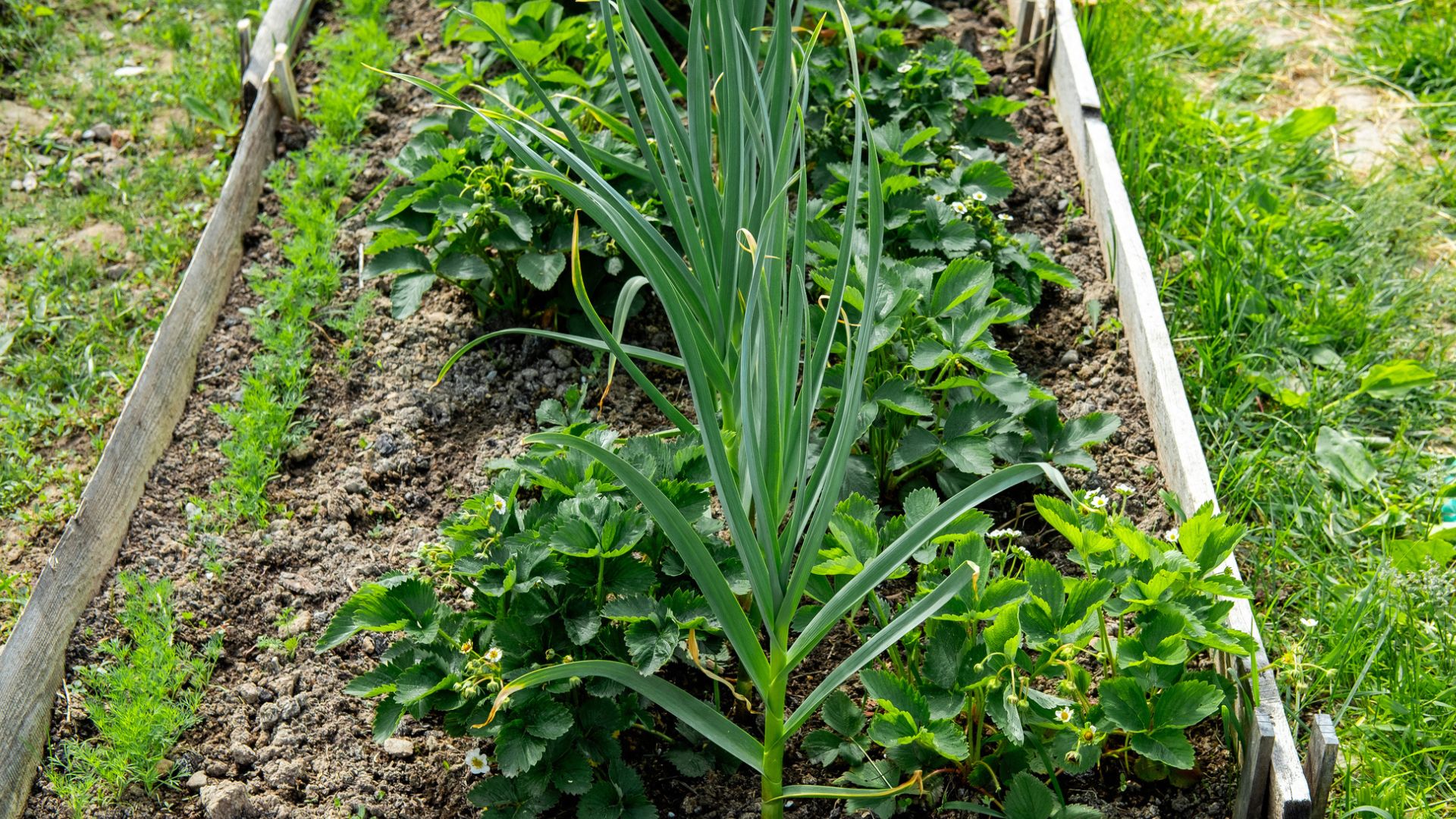Garlic Companion Planting: Plant Companions For Garlic
Garlic not only offers unique flavor and pest-repelling properties but also serves as a great companion for many other plants.


Garlic is one of the best companion crops out there. A natural pest and fungus deterrent with few incompatible neighbors, garlic is a good crop to plant scattered throughout your garden. Keep reading for information about the benefits of garlic and the key to successful garlic companion planting.
Garlic Companion Planting
Companion planting is a great low maintenance, low impact way to improve the health and flavor of your garden. Mainly because of the tendency of some plants to repel certain pests, there are pairings you can make when you plan your garden that just work.
Garlic, in particular, is something of a wonder plant that improves the quality and health of almost anything it’s planted next to. Garlic takes up very little space and can grow in most conditions, as long as it has full sun. As a result, it will thrive near plenty of other plants that may have more specific growing needs and can benefit from its proximity.
Garlic is definitely one of the more pungent plants you can grow. Maybe it’s because of this that makes it’s so good at driving away pests. It’s a great deterrent to all kinds of pests including:
Garlic can even drive away rabbits and deer. If your garden suffers from any of these creatures, try planting garlic next season. It grows best if planted late in the fall, however, so be careful not to miss its planting season. Garlic also naturally builds up sulfur, which is an effective fungicide for neighboring plants.
Plants That Grow Well With Garlic
Because of its many benefits, the list of plants that grow well with garlic is long. Companion plants for garlic include:
- Fruit trees
- Dill
- Beets
- Kale
- Spinach
- Potatoes
- Carrots
- Eggplants
- Tomatoes
- Peppers
- Cabbage
- Cauliflower
- Broccoli
- Kohlrabi
Flower plant companions for garlic include:
Gardening tips, videos, info and more delivered right to your inbox!
Sign up for the Gardening Know How newsletter today and receive a free copy of our e-book "How to Grow Delicious Tomatoes".
Companion plants for garlic that improve garlic’s overall growth include:
- Rue, which will drive away maggots
- Chamomile, which will improve its flavor
- Yarrow
- Summer savory
Though few, there are some plants that actually suffer when planted near garlic. Be sure to keep asparagus, peas, beans, sage, and parsley far away from it, as their growth can be stunted.
Companion planting is a great way to effectively grow plants without the use of any harsh chemicals. Plant companions for garlic and the like will help ensure a bountiful season. Simply intersperse your garlic throughout the garden to maximize its many benefits.
Love Gardening Know How? Our latest book, The Complete Guide to Vegetable Gardening, is available now!
Perfect for the gardener in your life, or for your own coffee table, this book boasts 224 pages of high-quality pictures, expert tips, and easy-to-follow advice to get your vegetable garden growing its best. Look for it at these sellers, and wherever quality books are sold.

The only child of a horticulturist and an English teacher, Liz Baessler was destined to become a gardening editor. She has been with Gardening Know how since 2015, and a Senior Editor since 2020. She holds a BA in English from Brandeis University and an MA in English from the University of Geneva, Switzerland. After years of gardening in containers and community garden plots, she finally has a backyard of her own, which she is systematically filling with vegetables and flowers.
-
 Looking For Plants To Give You The Soft And Fuzzies? Try These 5 Fuzzy Leaf Plant Options
Looking For Plants To Give You The Soft And Fuzzies? Try These 5 Fuzzy Leaf Plant OptionsLovers of texture, drama, silver foliage and tactile plants will adore these special sensory garden additions. These fuzzy leaf plant options will leave you all aglow
By Susan Albert
-
 Get Ready For A Summer Of Hummers! Grow These Full Sun Hummingbird Plants and Flowers
Get Ready For A Summer Of Hummers! Grow These Full Sun Hummingbird Plants and FlowersIf you’re lucky enough to enjoy a sunny backyard, make sure you are maxing out on your pollinator opportunities and grow these full sun hummingbird plants and flowers
By Tonya Barnett